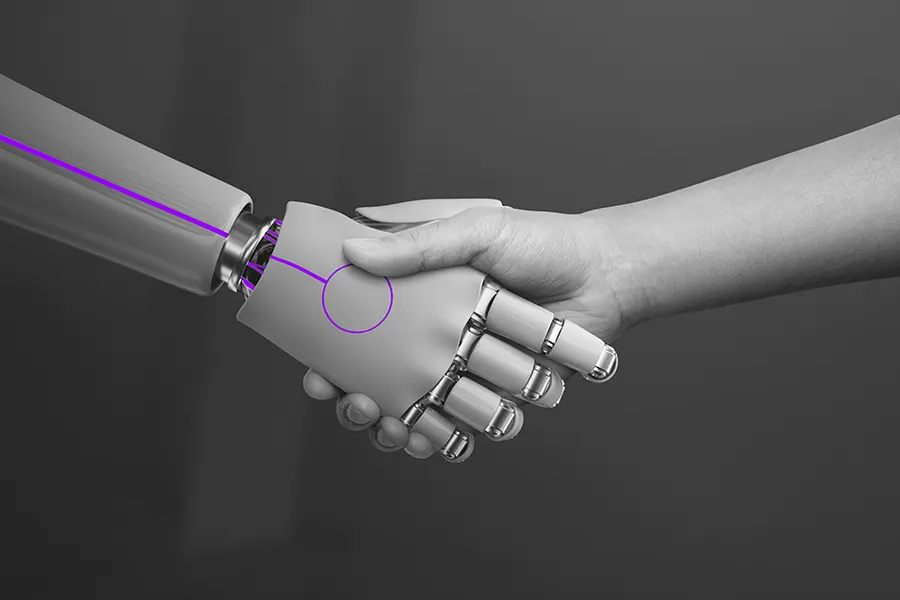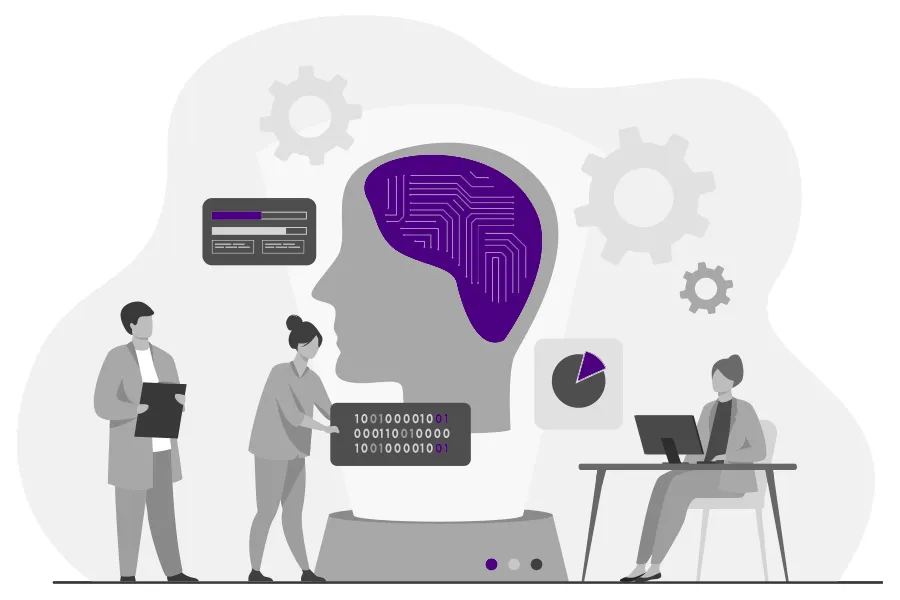Five Real-Life Examples of Artificial Intelligence

Listen up, fellow earthlings! Have you ever wondered what the future looks like? Are you still waiting for those flying cars and jetpacks promised to us by science fiction? Well, I have some good news for you, my friends: the future is already here, and it's all thanks to artificial intelligence (AI)!
Now, I know what you're thinking. "But AI sounds so serious and complex!" Don't worry, I'm here to break it down for you in a way that won't make your brain hurt. Think of AI as a superhero, with the power to transform the world we live in. From virtual assistants to self-driving cars, AI is changing the way we do things, and I'm here to show you how.
So buckle up, put on your superhero cape (or at least imagine you're wearing one), and let's explore some real-life examples of AI in action!
Virtual Assistants
First up, let's talk about virtual assistants. Think of Siri, Alexa, and Google Assistant as your own personal superheroes, ready to spring into action at your every command. With natural language processing (NLP), these digital assistants can understand and respond to voice commands, making life a whole lot easier. Need to set a reminder? Ask your virtual assistant. Want to listen to some tunes? Just say the word. According to a recent report by Voicebot.ai, there are now over 4 billion voice assistants in use worldwide with a projected 19.4 billion transactions.. That's a lot of super-powered helpers!
Virtual assistants can be used for a variety of tasks beyond setting reminders and playing music. They can also help you book flights, check the weather, and even order pizza. Just imagine how much time you can save by delegating these mundane tasks to your trusty AI sidekick.
Recommendation Systems
Next on our list is recommendation systems. These clever algorithms are the reason you're always getting bombarded with ads for products you never knew you wanted. It can be used to help you discover new books, movies, and TV shows that you're sure to love. But why stop there? These algorithms can also be used to suggest new recipes, fashion styles, and travel destinations. It's like having a personal shopper, travel agent, and chef all rolled into one!
Companies like Netflix, Amazon, and YouTube use machine learning to analyze your search and viewing history, so they can suggest new products and services that are relevant to your interests. It's like having your own personal shopper, but without the awkward small talk. Forbes cites in its article “Personalized Customer Experience Increases Revenue And Loyalty” that personalized recommendations can boost revenue by up to 300%. That's a whole lot of extra cash, thanks to AI!
Self-driving Cars
Self-driving cars are another example of AI in action. Remember when you were a kid and you dreamed of cars that could drive themselves? Well, the future is here! Thanks to sensors, cameras, and machine learning algorithms, self-driving cars are already on the road. Self-driving cars can be used to make commuting more relaxing and efficient. Just imagine being able to catch up on your favorite TV show, read a book, or even take a nap while your car drives you to work. Plus, self-driving cars have the potential to reduce accidents and traffic congestion, making our roads safer and less stressful.
Companies like Tesla and Google are investing heavily in this technology, and some experts predict that autonomous cars will become mainstream in the near future. According to a report by Allied Market Research, the global self-driving car market is projected to reach $556.67 billion by 2026. That's a whole lot of money riding on AI! Who knows, self-driving cars might be the first step to an actual working J.A.R.V.I.S. Let’s just hope he doesn’t become Ultron but that’s a dilemma for another day.

Fraud Detection
Now, let's talk about fraud detection. This can be used to protect not just individuals, but also businesses and governments. This is the superhero of the financial world, protecting your money from evil-doers. Machine learning algorithms can analyze large amounts of data to detect patterns of fraudulent activity, preventing billions of dollars in losses each year. Plus, it can help prevent identity theft and cyber-attacks, keeping our personal information safe and secure.
Machine learning algorithms can analyze transaction data to detect patterns that may indicate fraudulent activity. AI-based fraud detection will save businesses $11 billion annually by 2023 based on the latest study of Juniper Research. That's a whole lot of money staying in the right hands! So if someone tries to steal your hard-earned cash, the system will flag it and prevent the bad guys from getting away with it.
AI in Healthcare
Last but not least, let's talk about AI in healthcare. According to Accenture, AI has the potential to save the US healthcare industry $150 billion annually by 2026. That's a whole lot of lives and money saved, all thanks to AI! With machine learning algorithms analyzing medical images and patient data, doctors can now make more accurate diagnoses and treatments.
AI in healthcare has the potential to improve the accuracy and efficiency of medical diagnoses and treatments. With AI-powered medical imaging, doctors can detect early signs of diseases like cancer, potentially saving lives. And with virtual assistants helping patients manage their health, they can stay on top of medication schedules and doctor's appointments, leading to better health outcomes.
In the end, AI is like a trusty sidekick that's always by our side, making our lives easier and more efficient. Whether it's setting a reminder, suggesting a new product, or analyzing medical data, AI is becoming an increasingly integral part of our daily routines. And as technology continues to evolve, we can expect even more exciting developments that will transform the way we live and work. These are just five real-life examples of artificial intelligence- FIVE!
So let's embrace this AI revolution with open arms and a critical eye, ready to explore the possibilities and potential pitfalls of this fascinating technology. Who knows what amazing things we'll discover next?
